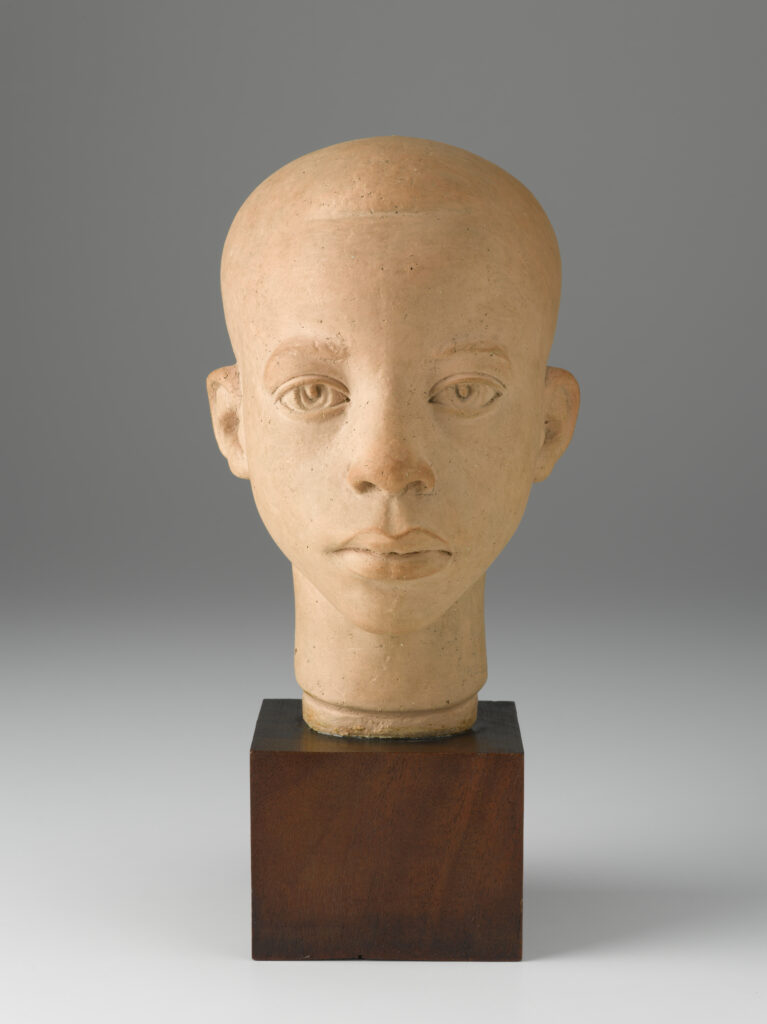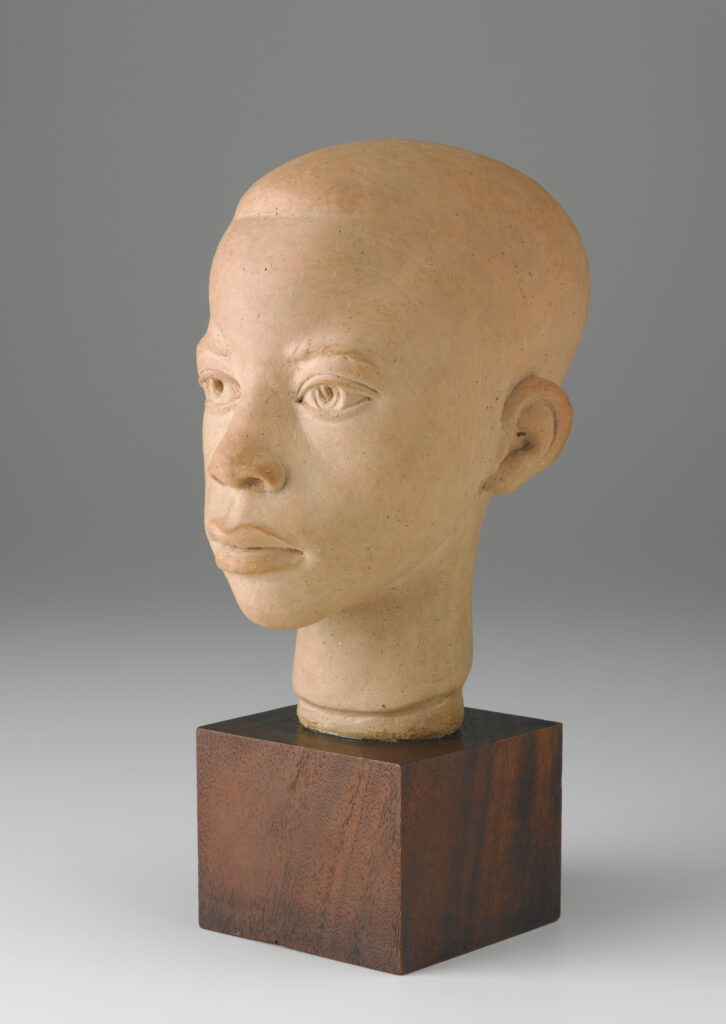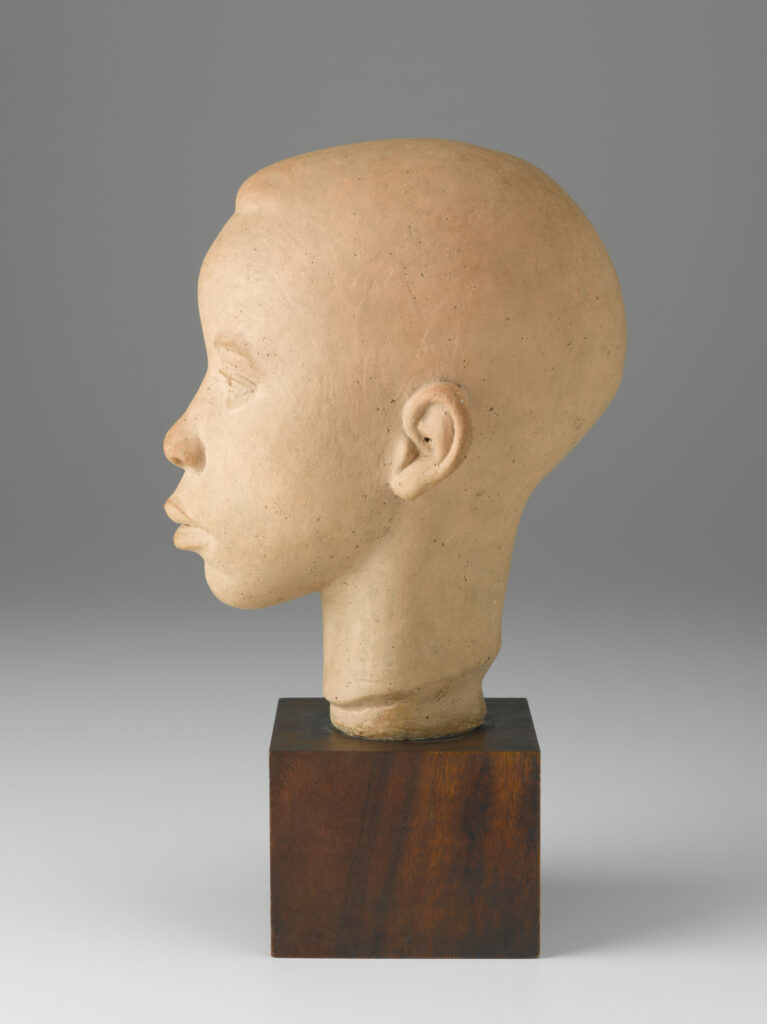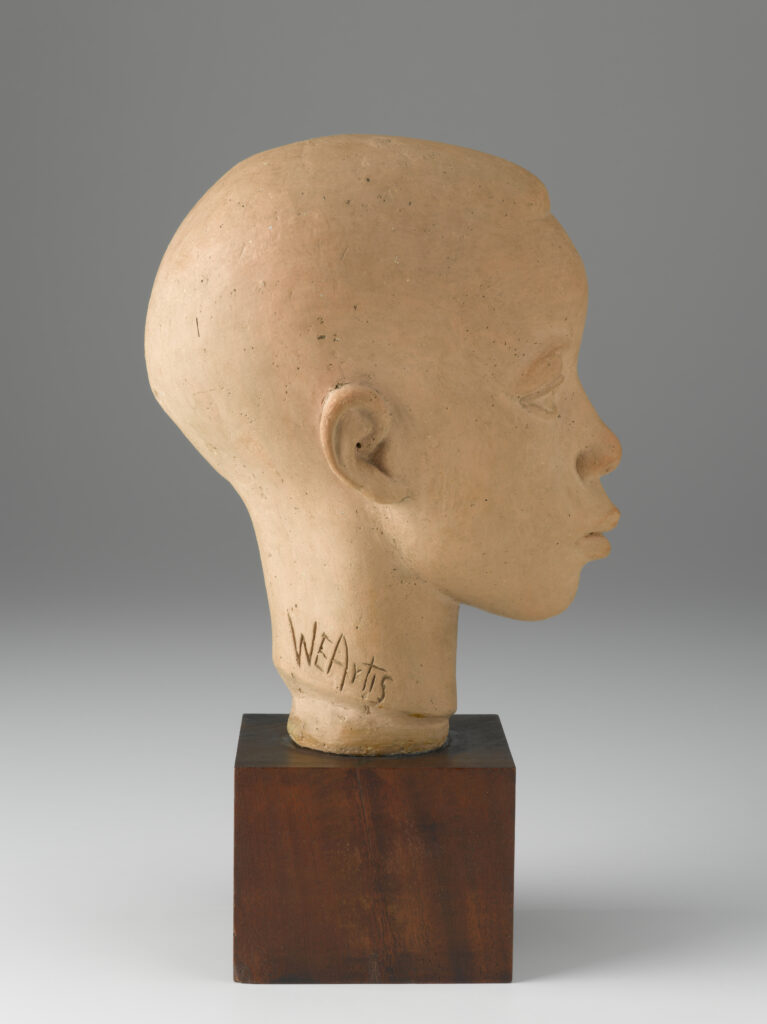Michael (work of art)
Artwork Info
Key Ideas
- This is a portrait bust of an African American boy. A bust is a sculpture that generally depicts a person’s head and neck. Some busts include part of the chest and shoulders.
- This sculpture is made from terracotta (fired clay).
- William Ellisworth Artis sculpted portrait busts out of terracotta and stoneware. His sculptures depict anonymous figures as well as local people who modeled for him.
- Artis was originally from Washington, North Carolina. He was a young teen when he moved to New York with his family during the Great Migration. It was one of the largest movements of people in United States history.
- Artis was a student of sculptor Augusta Savage. She was a key figure of the Harlem Renaissance.
- In addition to sculpting, Artis had a long career as an educator. He promoted art education in Southern Black schools in the 1940s.
Learn More
William Ellisworth Artis sculpted portrait busts out of terracotta and stoneware. Michael depicts the head and neck of an African American boy. The boy’s identity is unknown. He may have been a student who modeled for Artis when he visited a school in his hometown of Washington, North Carolina.
Artis was 14 years old when he and his family moved from North Carolina to New York. They were part of the Great Migration (1910 to 1970). The Great Migration was the movement of six million African Americans out of the rural South to the industrialized cities of the North. Black Americans moved to escape racism and violence and to find better jobs and opportunities.
In the early 1930s, Artis studied sculpture and pottery under sculptor Augusta Savage. She was a leading figure of the Harlem Renaissance. This was an early 20th-century art movement in which New York City’s Harlem neighborhood became a Black cultural center. The Harlem Renaissance encouraged the creation of literature, music, stage performances, and art that celebrates Black culture.
Artis won a Harmon Foundation prize in 1933. It funded his studies at the Art Students League of New York. He received a fellowship to promote art in Southern Black schools in the 1940s.
Additional Resources
Resources for Teachers
- Read an article about William Ellisworth Artis.
- Read an article about the Harmon Foundation.
- Watch a video about the 1933 Harmon Exhibition. (Artis is shown receiving the John Hope Prize five minutes into the video.)
Resources for Students
- Watch a video about the Great Migration.
- Watch a video about the Harlem Renaissance.
- Watch a short video of Artis working on a sculpture.




